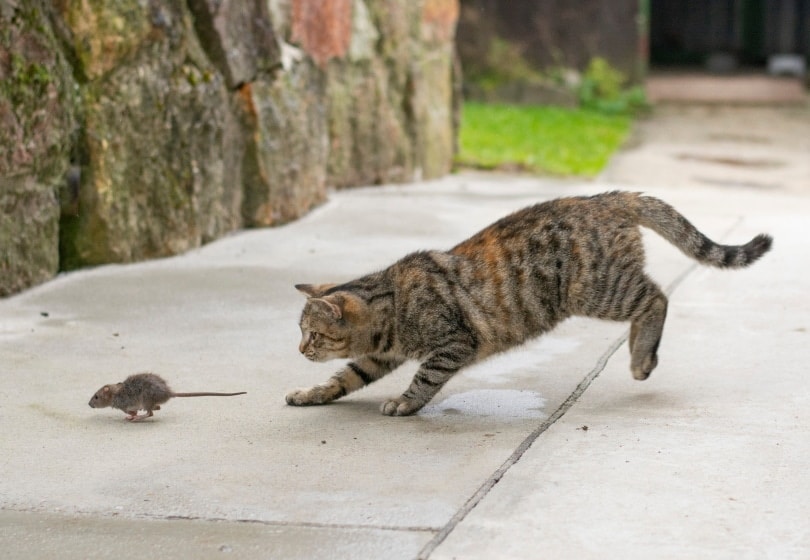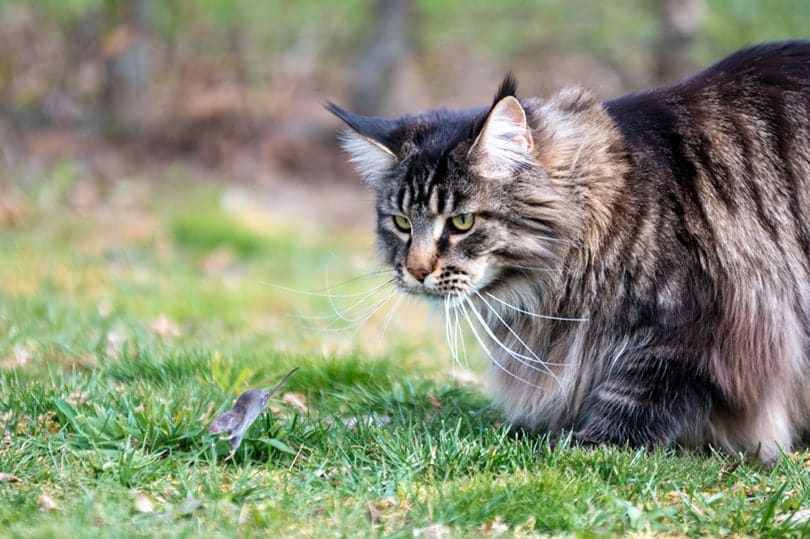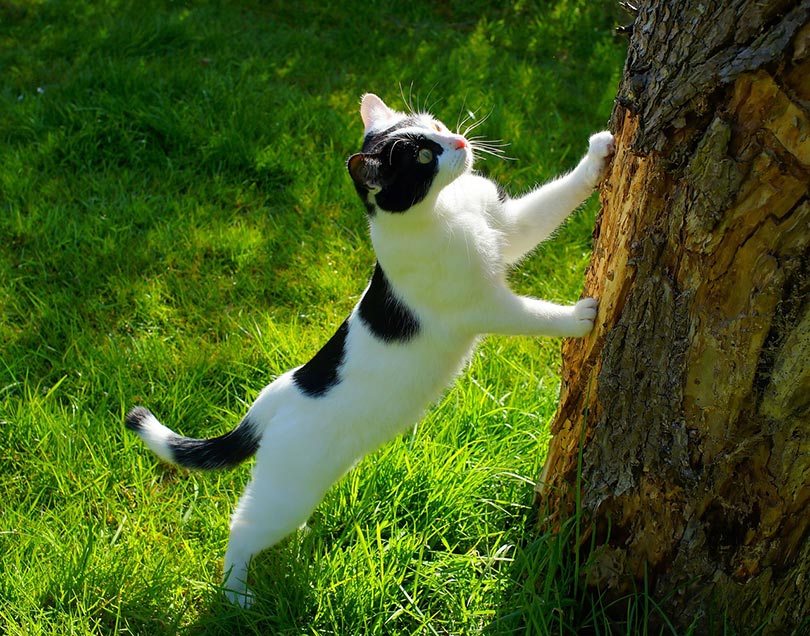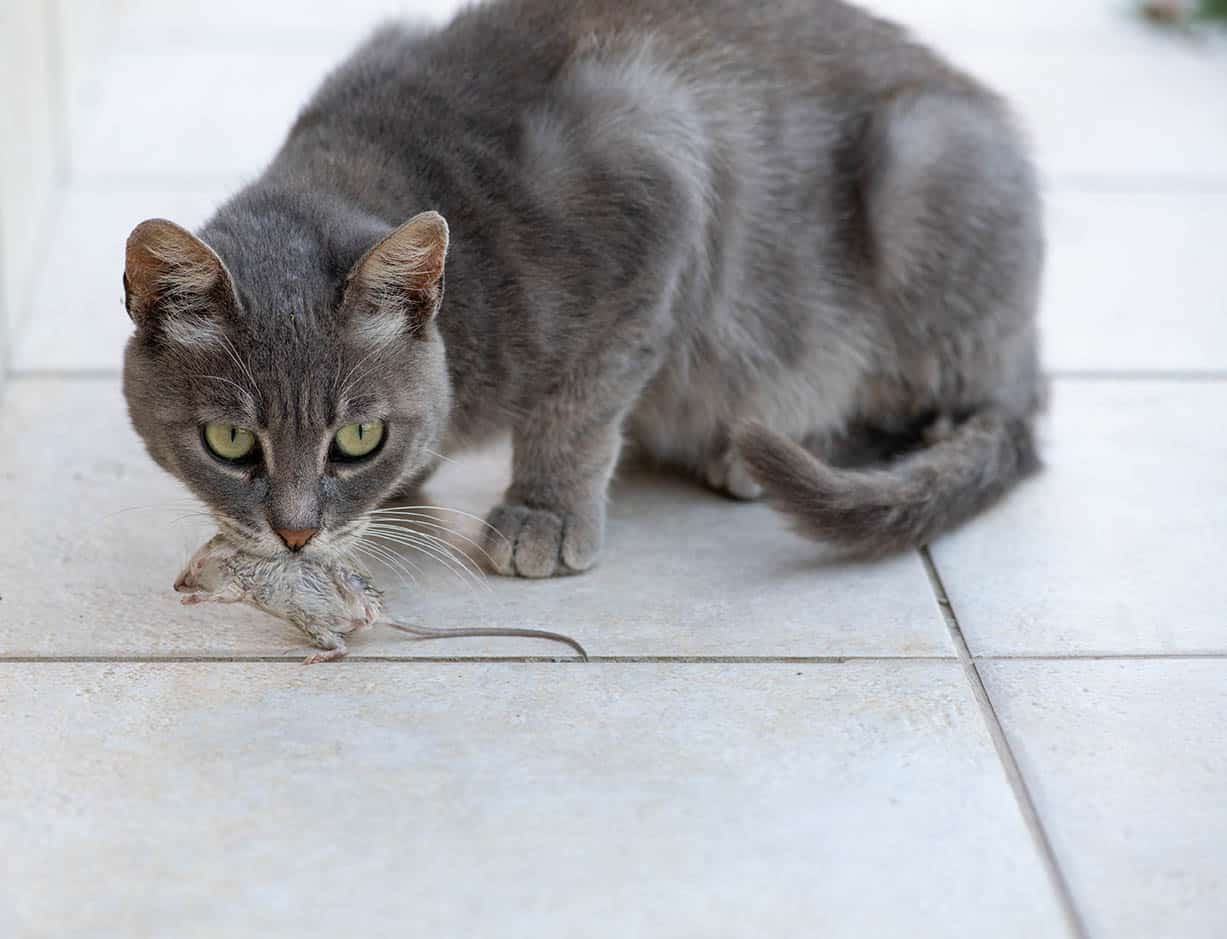We often overlook the fact that our adorable, fluffy cats are natural hunters. They possess innate instincts to chase, stalk, and hunt small animals. As pet owners, we may have witnessed our cats bringing home their prey, but what intrigues us is the act of playing with their prey before ultimately ending its life. While this behavior may seem cruel to us, it is essential to understand that it is not driven by malicious intent. Instead, it serves as a form of enrichment and entertainment for our feline friends. In this article, we delve into the feline psyche to decipher the underlying reasons behind this mysterious behavior.
The Stamina Theory
Felines share a common instinct with their prey – the fight-or-flight response. When cornered or chased, prey may choose to fight back, potentially injuring the predatory cat. One theory suggests that playing with prey is a tactic used by cats to exhaust their targets. By taunting and tiring their prey, the risk of a counter-attack decreases when delivering the final blow. However, this theory has its flaws. Wild cats rarely engage in excessive play with their prey as it risks losing their kill to other animals. Moreover, playing itself requires energy, which contradicts wasting energy on playing with prey. This theory is further challenged by the observation that pet cats, who are well-fed, engage in more playtime with their prey.
The Size & Hunger Theory
A study on the predatory behavior of domesticated cats has revealed interesting findings. Cats are more likely to successfully make a kill when driven by hunger. On the other hand, prey that is larger or more challenging to catch has a higher chance of avoiding capture. When cats are uncertain about the hunger level and size of their prey, they tend to spend more time playing with it. This behavior suggests that cats either enjoy the entertainment when not truly hungry or engage in playful assessment to determine their prey’s vulnerability.
Cats Just Wanna Have Fun!
It is widely believed that cats play with their prey simply because it’s enjoyable for them. Even though there are behavioral reasons behind this behavior, it is undoubtedly a source of amusement for cats. Their idea of fun differs from ours, as they derive pleasure from stimulating their senses and engaging in natural hunting behaviors.
Despite their fearsome appearance, most cat species have a low success rate in hunting. As opportunistic hunters, they seize any chance to catch prey, regardless of hunger. Our domestic cats, well-fed and without the need to hunt for survival, still retain their hunting instincts. When they capture prey, they may realize they are not hungry and instead extend the enjoyment by keeping the prey alive for longer.
Natural Born Killers?
While many wild cat species teach their young how to hunt and kill, some domestic cats seem to figure it out independently. However, not all cats possess the same level of hunting skills. Some cats may play with their prey to practice and improve their hunting techniques.
A Teaching Moment/Gift
When your cat proudly brings home a live mouse, causing panic within your household, it may not be merely playing with its prey. Cats may be attempting to teach you, their human, how to catch and kill prey. As cats consider humans to be large, hairless, and somewhat inept cats, they may bring live prey to demonstrate hunting techniques. It is their way of offering you an easy kill, thinking you are incapable of catching your own food. This theory also explains why cats meow loudly when they catch prey – they are inviting you to partake in the “teaching moment.”
Frequently Asked Questions
Q: Why do cats play with their prey before killing it?
A: Cats play with their prey as a form of enrichment and entertainment. It is not driven by malicious intent but rather serves as a way to engage their natural hunting instincts.
Q: Do all cats play with their prey before killing it?
A: No, not all cats exhibit this behavior. Some cats may not engage in play and instead go straight for the kill.
Q: Can playing with prey be considered cruel?
A: While it may appear cruel to us, it is essential to understand that playing with prey is a natural behavior for cats. It serves as a way for them to fulfill their hunting instincts and derive enjoyment from the process.
Conclusion
Cats are fascinating creatures, with behaviors that may forever remain enigmatic to us. While we may never fully comprehend their actions, extensive research and observation have shed light on the reasons behind their playtime with prey. From the stamina theory to the size and hunger theory, each explanation provides valuable insights into this captivating behavior. It is important to remember that our domestic cats retain their hunting instincts, even if they are well-fed and have no need to hunt for survival. So the next time your cat engages in play with its prey, appreciate the fascinating and instinctual nature of this behavior.
Featured Image Credit: Stefan_Sutka, Shutterstock



